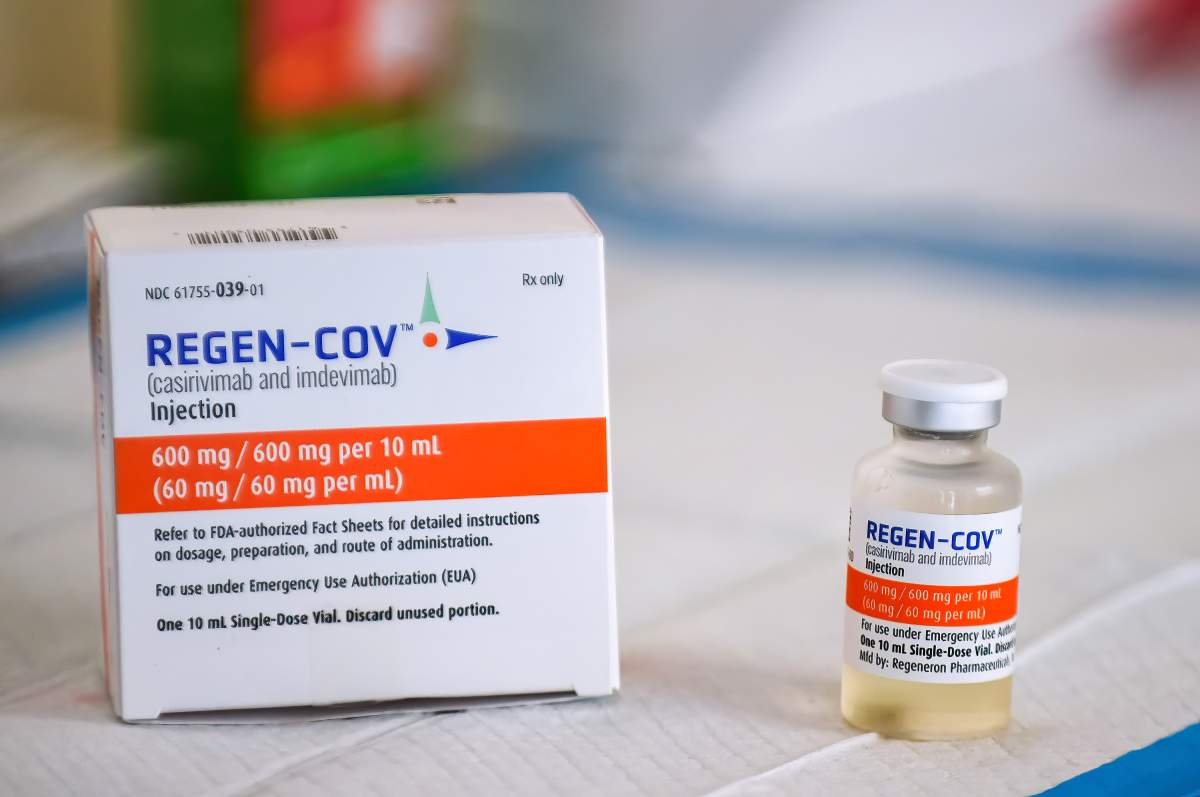Fewer than 10 people in Saskatchewan who contracted COVID-19 received monoclonal antibody treatment.

In a Provincial Emergency Operations Centre (PEOC) technical briefing on Tuesday, Saskatchewan Health Authority (SHA) CEO Scott Livingstone told reporters the health authority treated so few people because there are fewer patients eligible.
As more people have gotten vaccinated, Livingstone said, fewer people could receive the treatment – though he admitted the health authority had planned to treat more patients with it.
“When you set up these (monoclonal therapy) clinics and the potential for the clinics, we were looking at case numbers around 500 a day,” he said.
“Those have dropped dramatically and as a result, that automatically takes people away from who would qualify. So right now, we’re targeting five to seven treatments a day, but we haven’t reached those numbers yet.”

Get breaking National news
Healthcare workers use monoclonal antibodies to treat COVID-19 patients who are unvaccinated or immunocompromised before they need to visit an ICU.
The treatment became available for Saskatchewan residents about a week ago. Livingstone said two clinics treat patients in Saskatoon and Regina currently and he hoped to expand the practice.
The province’s chief medical health officer Dr. Saqib Shahab said the practice was only ever designed for “a specific and limited role.”
“I’ll emphasize that the mainstay of prevention right now is vaccination,” he added.
Global News asked if it was worth having SHA personnel staff monoclonal therapy clinics when the health authority has reassigned workers from other areas, limiting services.
Livingstone said the child psychologists the SHA reassigned weren’t we will continue to examine all opportunities to reduce some of the most serious impacts of the virus has on our health care system moving forward.
Livingstone said the health authority sought to exhaust all options regarding COVID-19.








Comments
Want to discuss? Please read our Commenting Policy first.